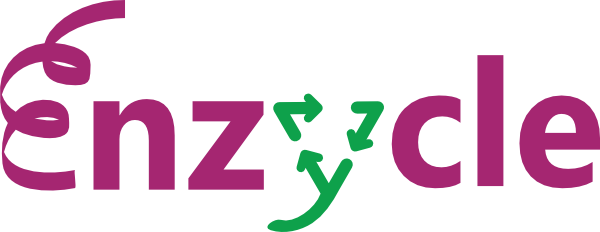Authors: Mathias Fink & Gerald Striedner, BOKU
Plastics of various kinds have conquered almost all areas of human life and their properties allow a wide variety of applications. However, man’s careless use of plastic leads to ubiquitous environmental pollution (water, soil, air), and the common approach of single use followed by disposal through landfill or incineration is diametrically opposed to the principles of sustainability. Thus, plastic waste causes a total of more than six million tons of CO2 emission, resulting in enormous additional costs all over the world. The key could be efficient recycling of plastics as only approximately one third of produced plastics worldwide are recycled these days. Additionally, up to date there are not even technologies that can be used for the recycling of specific plastics in a value-preserving manner. This is the topic we are addressing in our scientific work.
But how can a bacterium that is part of all our bodies and is flushed down the toilet in our daily lives be part of the solution to all these challenges? Eschericha coli (E. coli) is a bacterium in the gut microbiome of all warm-blooded animals, including us humans. It was discovered and isolated from feces by Theodor Escherich in 1885, was been intensively studied from that timepoint onwards and is one of the best described and characterized organisms on earth. Its career as a research subject has allowed it to reach fame being part of numerous Nobel prize honored works. Thus, it became a very important model organism for molecular biology and biotechnology and also for industry. The first commercial use of E. coli was the recombinant expression of the human hormone somatostatin and finally it revolutionized the commercial production of insulin and different growth hormones. Since then, throughout the last decades E. coli was used for the production of numerous recombinant proteins and became the workhorse of biotechnology.
Therefore, we now want to employ E. coli for the production of PET and polyolefin-degrading enzymes in the course of the ENZYCLE project. Our goal is to develop processes for the economical production of these enzymes in large quantities, which are needed for the development of value-preserving plastic recycling processes. Value preservation provides the basis for designing sustainable life cycles of plastic products. This approach will limit the enormous consumption of raw materials and energy in the field of plastics, while at the same time reducing environmental pollution. Research on the efficient production of enzymes using E. coli is performed by the BOKU research group of Gerald Striedner, which has considerable expertise in this field. The work started with PET degrading enzyme candidates identified and selected by our partner at the University of Leipzig. The most promising candidate PHL7 was used to design the production process with the enGenes-X-press strain dedicated for high-yielding large-scale production. The results obtained so far are very promising, but they also show that these enzymes are difficult to produce, which in turn conflicts with the objective of large product quantities.
So, this is, how a tiny organism we all get in contact with in our everyday lives is supposed to make the difference in the battle against a huge issue caused by humanity and affecting the whole environment. In summary, the work within the ENZYCLE project will provide first proof of feasibility of the enzyme-based plastics recycling approach. It will also guide the direction of future research projects needed to enable the full implementation of closed life cycles of plastic products in the long term.
